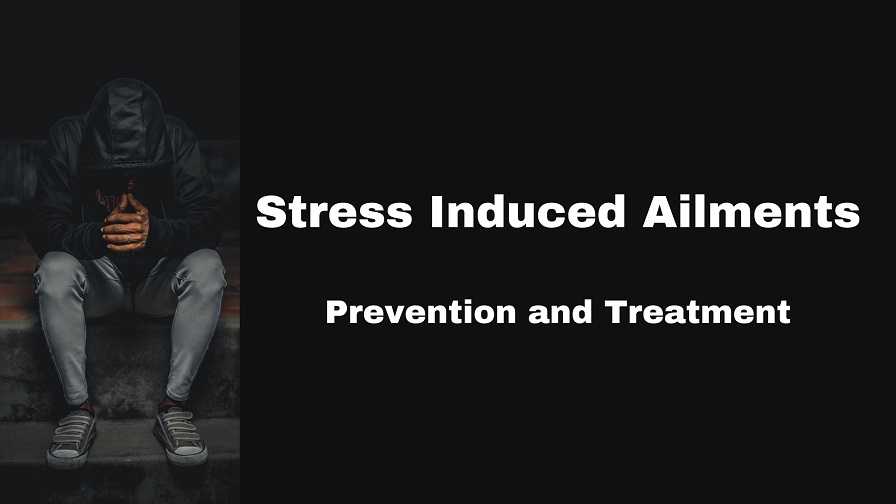Stress Induced Ailments: Prevention and Treatment
Stress is an inevitable part of life, and while occasional stress is manageable, chronic or excessive stress can lead you to a range of physical and mental health issues known as stress-induced ailments.
These ailments can manifest in various ways, affecting the body and mind. However, with a proactive approach to prevention and a comprehensive treatment plan, you can effectively manage stress-induced ailments and maintain your overall well-being.
This article delves into the prevention and treatment strategies for stress-induced ailments, emphasizing the importance of a holistic approach.
Common Stress-Induced Ailments
Stress-induced ailments can encompass a wide range of conditions, including:
Cardiovascular Issues: Chronic stress can contribute to high blood pressure, heart disease & an increased risk of stroke.
Gastrointestinal Problems: Stress can exacerbate digestive disorders such as irritable bowel syndrome (IBS) and acid reflux.
Immune System Suppression: Prolonged stress can weaken the immune system and make you more susceptible to infections.
Mental Health Disorders: Stress is linked to anxiety, depression, and other mental health conditions.
Musculoskeletal Pain: Stress can cause or intensify muscle tension, leading to the pain in the neck, back, and shoulders.
Prevention Strategies
Stress Management Techniques
Incorporate stress-management techniques into your daily routine, such as meditation, yoga, deep breathing, and mindfulness. These practices help lower stress levels and prevent its negative effects.
Regular Physical Activity
Regular exercise releases endorphins, improves mood and reduces stress. Aim for at least 150 minutes of moderate-intensity exercise per week.
Healthy Diet
Consume a balanced diet rich in the fruits, vegetables, whole grains, and lean proteins, and healthy fats. Proper nutrition supports your immune system and overall well-being.
Adequate Sleep
Prioritize sleep and aim for around 7-9 hours of rest each night. Sleep allows your body to repair & recharge, reducing the impact of stress.
Social Support
Maintain strong social connections with friends and family. A support system provides emotional comfort and reduces feelings of isolation.
Time Management
Learn effective time management techniques to reduce feelings of overwhelm and prevent stress-related issues.
Limit Stressors
Identify sources of chronic stress and take steps to minimize their impact on your life. This could involve setting boundaries, managing workloads, or seeking professional help.
Treatment Approaches
Professional Help
If stress-induced ailments manifest, seek professional guidance from healthcare providers, therapists, or counselors. They can offer personalized treatment plans.
Medication
In some cases, medication may be prescribed to manage the symptoms of stress-induced ailments. Consult a healthcare professional before considering any medication.
Cognitive-behavioral therapy (CBT)
CBT is a type of a psychotherapy that helps individuals manage stress and improve coping strategies. It’s effective for treating mental health conditions related to stress.
Relaxation Techniques
Incorporate relaxation techniques like progressive muscle relaxation, guided imagery, and deep breathing to alleviate symptoms and promote relaxation.
Physical Therapy
Physical therapy can help relieve tension, improve flexibility, and strengthen muscles for musculoskeletal pain.
Holistic Approaches
Consider complementary therapies like acupuncture, massage, and aromatherapy to promote relaxation and alleviate stress-induced ailments.
Conclusion
Preventing and treating stress-induced ailments requires a comprehensive and holistic approach that addresses both the body and mind.
By adopting stress management techniques, maintaining a healthy lifestyle, seeking social support, and seeking professional help, you can effectively prevent and manage the negative effects of chronic stress on your well-being.
Remember that each individual’s journey is unique, and a combination of strategies made for your specific needs will yield the most effective results.
Thanks for visiting How To Cure Stress

